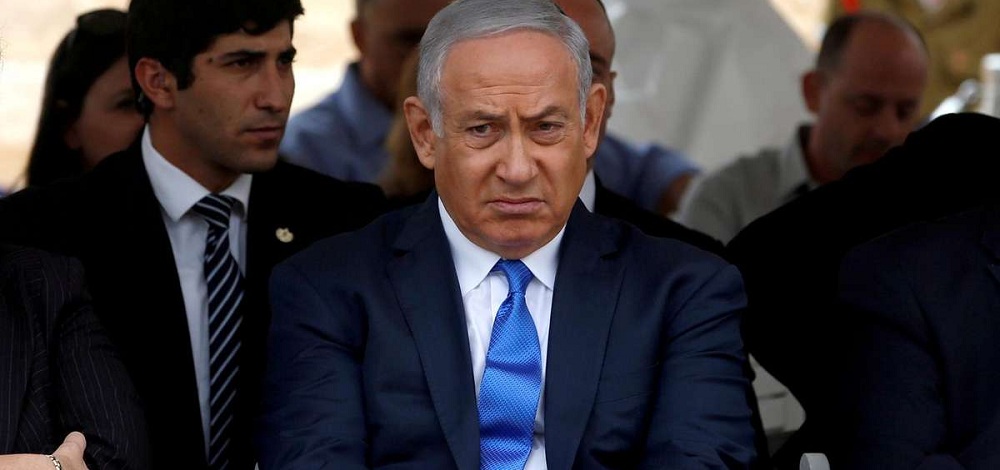Alwaght- As the Israeli parliamentary elections of April 9 draw closer, tensions in the occupied Palestinian territories escalate and the Israeli army ramps up attacks on the besieged Gaza Strip.
On Sunday, the Israeli air force jets carried out a string of airstrikes on Gaza under the excuse of rockets allegedly fired from the Palestinian enclave. In another front of confrontation, the Israeli soldiers intensified their attacks on the peaceful Palestinian protests that come within “Great March of Return” campaign launched in March 2018, despite massive international criticism. Last Friday, Israeli troops cracked down on the protestors and killed at least one Palestinian and wounded several others, including medics and journalists.
The Palestinian Authority, which is in security contacts with the Israelis, did not survive the escalation. Prime Minister Benjamin Netanyahu has issued an order blocking the money transfers of the Authority, based in Ramallah, tying the ban lifting to President Mahmoud Abbas promise to avoid paying money to the Palestinians acting against the Israeli security. The move drew strong protest from Abbas. The United Nations Security Council finally held a session with a call from Kuwait as a temporary member.
The augmented pressures against the Palestinian factions come as part of a scenario designed by the right-wing parties to marginalize the left-wingers like the Labor Party. Netanyahu also embarks on these pressures to shrug off the criticism by the hardline defectors of his coalition. The clash between him and his opponents was apparent from the campaign speeches recently made by the two sides.
The rightist critics of Netanyahu seek to paint his policies concerning the Israeli home security as compromising. Avigdor Lieberman, the former defense minister who defected from Netanyahu coalition government in mid-November last year, yesterday said that he in July 2018 presented a plan to assassinate leaders from Hamas and Islamic Jihad, both movements based in Gaza. He added that he put a lot of effort into persuading Netanyahu who opposed to the idea.
Last week, Benny Gantz, the former Israeli army chief and the key Netanyahu contender in the upcoming elections, continued his campaign by visiting the occupied Golan Heights. Attacking Netanyahu’s defense policy, Gantz, who leads the newly-founded Blue and White party, said: “we prevent the entrenchment of the Iranian forces in Syria, Gaza, and Lebanon fronts and will end their presence.”
Netanyahu’s hard times and playing tough
The recent polls, including the one conducted by the Yedioth Ahronoth, suggest that the coalition of Gatza and Yair Lapid, the leader of centrist Yesh Atid party, will lead in the upcoming vote with 33 seats while Netanyahu’s Likud Party is expected to win only 29 out of the total 120 Knesset seats.
The polls analysts note that no matter what will be the number of the seats gained by the two sides, the key combat fight will be over persuading the smaller parties to unite with the two leaders of the race.
To stay in power, Netanyahu is setting his heart on the unity with the far-right and ultra-orthodox parties, a dream moving closer to realization in an atmosphere of antipathy against the Palestinians and adopting aggressive policies. This reality is underscored by the opposition left. Labor lawmaker Stav Shaffir blamed Prime Minister Benjamin Netanyahu for a series of death threats she has received from the extreme right. Shaffir, a leading MK with the party, has had a bodyguard assigned to her since becoming the target of vicious attacks over her attempts to have the far-right Otzma Yehudit party banned from running for election last week.
“I don’t blame the extremists, I blame only one: Prime Minister Benjamin Netanyahu,” she told a party gathering in Haifa Saturday, Yedioth Ahronoth reported. “Instead of calming things, he’s the one standing at the head of the posse,” she continued.
The Netanyahu moves and stances are revolving around an extremist approach. On Sunday, he in remarks seen profoundly racist denied the rights of Palestinians to return home, supporting his words by a reference to the July 2018 “Jewish state” law passed by the Knesset.
The comments will mean that a new wave of anti-Palestinian and Arab discrimination is in the making in the occupied territories all to satisfy the extremist Israelis.
The Palestinians in many occupied areas are under a regime of segregation in bus riding. In many streets, there are walls separating the Arab and Jewish areas. The public services provided to the Jewish neighborhoods are obviously higher in quality than in Arab-majority spots. While the Zionist settlements are growingly creeping into the occupied West Bank, the Palestinians are denied licenses for construction in their own lands. Netanyahu has recently cracked down on the Palestinians protesting Al-Aqsa gate, or Bab al-Rahma, standoff. While the Palestinians rallied against the court-ruled closure, Netanyahu personally attended the security apparatuses’ meetings on Old City incidents and ordered a crackdown on the protestors and also on Al-Quds Islamic Awqaf activities. He called on the gate to be re-closed in the implementation of 2017 court ruling. The recent polls on him show that the recent measures have promoted his position in the eyes of the Israeli public once again.



























